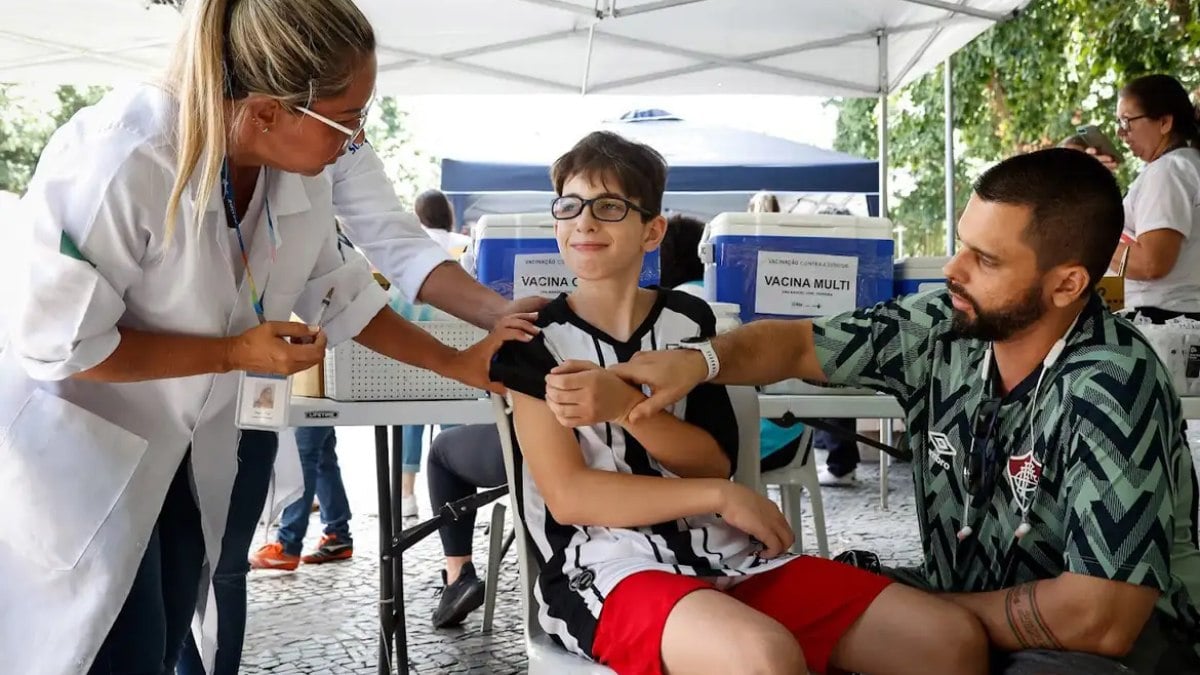
By the end of March, the city of Rio expects to vaccinate 354,000 children and adolescents between the ages of 10 and 14 years.
About 1 in 4 Brazilians (26%) do not want to take the vaccine against it Dengue fever
. The data was obtained through a survey conducted by him Quest
Released on Sunday (10). Commissioned by Genial Investimentos, the study interviewed 2,000 people between February 25 and 27, in 120 cities. The margin of error is plus or minus 2.2 percentage points.
According to the survey, 67% of people said they wanted to take the dengue vaccine. 5% have not yet decided on their opinion, while 3% do not know how to express their opinion on the matter.
Introductory account
However, according to the survey, among those who do not intend to be vaccinated, the majority live in southern Brazil, with 34% of respondents. The Southeast (26%), Midwest/North (24%), and Northeast (23%) regions appear next.
In terms of age, the group between the ages of 35 and 59 is the most opposed to the vaccine, with 29% of responses. This is followed by groups aged 16-24 (24%), and those aged over 60 (23%).
In the section on selection for the second round in the 2022 elections, the majority of those who did not want to be vaccinated voted in favor. Jair Bolsonaro (pl). The former president's voters represent 40% of those who do not approve of the vaccine.
Next are those who voted impatiently, invalidly or who did not go to vote (25%) and those who voted for the current Labor leader Luiz Inacio Lula da Silva (16%).
In terms of education and income, those who do not want to be vaccinated are the majority among those who have or have not completed secondary education (28%) and among those who earn between 2 and 5 minimum wages (28%).
Government evaluation
According to the Quest poll, 55% said they believe the government is making efforts to control dengue cases, while 40% said the measure is insufficient. They did not know or did not respond, constituting 5%.
As for responsibility for the problem, 51% of those interviewed held city councils responsible. For 22%, it is a federal government problem, and for another 22%, the responsibility lies with both governments. They did not know or did not respond, a total of 5%.

“Wannabe internet buff. Future teen idol. Hardcore zombie guru. Gamer. Avid creator. Entrepreneur. Bacon ninja.”
